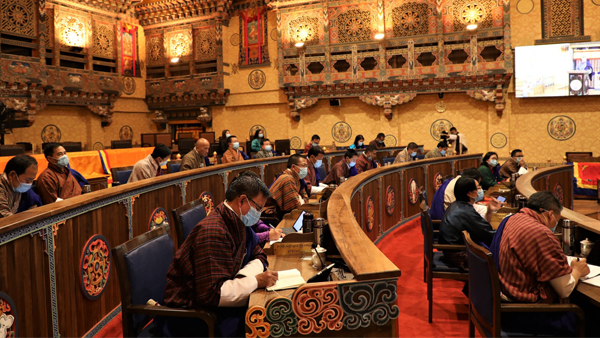 The National Council members recently debated on the increasing number of Civil Society Organisations (CSOs) in the country while discussing the Civil Society Organisation (Amendment) Bill. The members shared concerns on the approval of CSOs every year. On the contrary, the CSOs feel that the growth of CSOs will only enhance the social welfare in the country.
The National Council members recently debated on the increasing number of Civil Society Organisations (CSOs) in the country while discussing the Civil Society Organisation (Amendment) Bill. The members shared concerns on the approval of CSOs every year. On the contrary, the CSOs feel that the growth of CSOs will only enhance the social welfare in the country.
The Member of Parliament (MP) from the Paro constituency along with other members said the rate at which numbers of CSOs are getting approved is worrying as it will be difficult to regulate.
“We have fewer human resources. Although CSOs are very important, my only concern is if the number of CSOs keeps on increasing, it will be hard to regulate. This will also trigger the lack of human resources and insufficient budget. We need to plan on how many CSOs should be approved in certain years based on their eligibility criteria. So if we accept every application, then the government budget won’t be sufficient for every CSOS,” said Ugyen Tshering, the National Council MP from Paro.
On the other hand, the CSOs members said they do not receive any financial support from the government. The core coordinating committee of the CSOs said they have obtained Nu 3 M from international grants to implement their plans and programmes.
“As of now when we look at the existing number of registered CSOs, I don’t feel it is something to be worried about. The number is good. The 53 CSOs registered in the last ten years have raised Nu 300 M funds. It has also provided employment opportunities. If there is CSO, it will benefit both democracy and the society,” said Tashi Namgay, the Chairperson of the Core Coordinating Committee.
“When the number of CSOs increases, it will depend on the vision and mission of the individual CSOs to decide on the negative or positive impacts to the government and the society. As a CSO, we are especially reaching out to those where the government cannot reach,” added Dawa Tshering, the Founder of the Bhutan Stroke Foundation.
The authority of the CSO said the increasing number of CSOs can only enhance competition amongst the various CSOs to access grants which in turn will enhance productivity.
“As more and more CSOs are getting registered with the authority so they will be fighting for funds. The funds have to come from overseas from the donors and developmental partners. And based on the quality of their own project proposal, each CSO might get a chance to access those grants,” said Tshewang Tobgyel, the member secretariat of the Civil Society Organisation Authority.
Currently, there are 53 active registered CSOs and 25 pending applications for CSOs.
Kinzang Lhaden & Kelzang Choden






